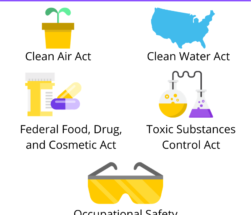In today’s fast-paced and highly competitive business world, possessing technical skills alone is not enough to guarantee success. Increasingly, employers are recognizing the importance of emotional intelligence in cultivating a healthy and productive work environment. Emotional intelligence, commonly known as EQ, refers to a set of abilities that enable individuals to recognize, understand, and manage their own emotions, as well as those of others. In this article, we will delve into the significance of emotional intelligence in the tech industry and explore how it can enhance both individual and organizational success.
Understanding Emotional Intelligence
1. The Core Components of Emotional Intelligence
Emotional intelligence comprises several core components that contribute to its effectiveness in the business realm. These components include self-awareness, self-regulation, motivation, empathy, and social skills. Self-awareness involves recognizing and understanding one’s emotions and how they affect behavior. Self-regulation, on the other hand, revolves around managing and controlling these emotions, particularly in stressful situations. Motivation, in this context, pertains to the ability to set and achieve goals despite obstacles.
Empathy, another critical component, involves understanding others’ emotions and perspectives and effectively responding to them. Lastly, social skills refer to the aptitude for building strong relationships, fostering effective communication, and working collaboratively.
2. The Role of Emotional Intelligence in the Tech Niche
In the tech industry, where technical expertise and problem-solving abilities take the center stage, one might question the relevance of emotional intelligence. However, the need for emotional intelligence is paramount in this niche precisely because it is often overlooked. Technological advancements have led to an increased reliance on virtual communication and diminished face-to-face interactions. Consequently, the ability to connect with colleagues and clients emotionally becomes even more crucial.
Moreover, the tech industry is notorious for stress-inducing deadlines, unpredictable challenges, and constant change. To navigate these hurdles successfully, professionals with high levels of emotional intelligence are better equipped to adapt, remain resilient, and maintain their focus.
Benefits of Emotional Intelligence in the Business World
1. Strengthening Leadership Skills
Effective leadership goes beyond technical expertise. Leaders who possess emotional intelligence have the ability to inspire and motivate their team members, fostering a positive work environment. They also excel in resolving conflicts and promoting collaboration, leading to increased productivity and employee satisfaction.
2. Enhancing Communication and Collaboration
Clear and empathetic communication lies at the heart of any successful business venture. Professionals with high emotional intelligence are skilled at expressing their thoughts and ideas effectively, actively listening, and resolving conflicts. This improves team dynamics, boosts employee morale, and encourages open and honest communication.
3. Developing Client Relationships
Building strong client relationships is essential for business growth. Emotional intelligence allows tech professionals to actively understand clients’ needs, concerns, and preferences, thereby tailoring their services accordingly. This builds trust, loyalty, and long-term partnerships.
4. Managing Stress and Resilience
The tech industry can be highly demanding and competitive, leading to increased stress levels among professionals. Emotional intelligence equips individuals with the necessary tools to manage stress effectively, prioritize tasks, and bounce back from setbacks resiliently. This promotes overall well-being and enables professionals to consistently perform at their best.
Conclusion
In today’s rapidly evolving tech industry, emotional intelligence is no longer a “nice to have” attribute; it’s a fundamental skill for success. By cultivating self-awareness, empathy, and strong communication skills, professionals can navigate the challenges of the tech niche with ease. Moreover, organizations that prioritize emotional intelligence foster a supportive and inclusive work culture that attracts top talent, enhances teamwork, and drives innovation. So, whether you’re an aspiring tech professional or a business leader, investing in emotional intelligence will undoubtedly unlock new opportunities and contribute to your overall success.








